13 Irritating Ingredients to Avoid in Skincare Products for Sensitive Skin
Finding the right skincare for sensitive skin can feel like a challenge. Certain ingredients in skincare products are known to cause irritation and discomfort. The good news is that with some simple precautions, you can avoid these triggers. By being aware of which ingredients to watch for, you can ensure your skin stays calm and nourished. Let us help you navigate through the skincare options without the irritation.
This post may contain affiliate links, which helps keep this content free. Please read our disclosure for more info.
Fragrance (Synthetic and Natural)

Fragrance is a common ingredient in many skincare products, but it is one of the leading causes of irritation for sensitive skin. Whether it is synthetic or derived from natural sources, fragrance can trigger allergic reactions, redness, or a rash. Many fragrances contain chemicals that disrupt the skin’s barrier and lead to discomfort. When shopping for products, always look for “fragrance-free” or “unscented” labels to avoid this potential irritant.
While some may find fragrance pleasant, it does more harm than good for those with sensitive skin. Even products labeled as “natural” may still contain irritating plant-based fragrances. It is important to be cautious of these ingredients, especially if you have a history of skin reactions. For safer alternatives, look for formulations that are free from added scents and rely on essential oils for their calming properties.
Alcohol (Isopropyl Alcohol, Ethanol)
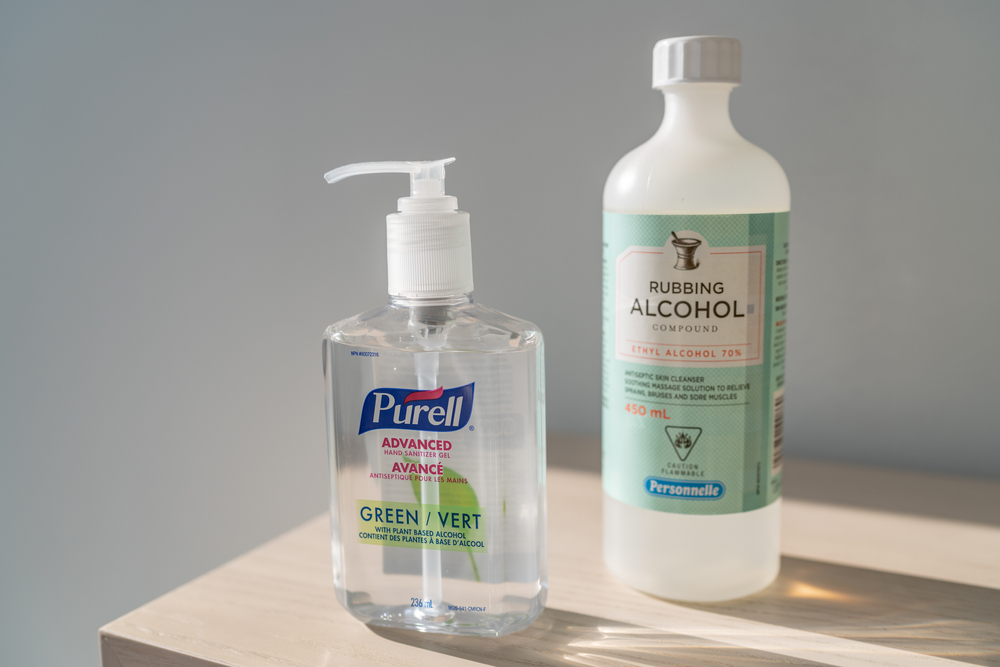
Alcohols such as isopropyl alcohol and ethanol are commonly used as solvents in skincare. While they help ingredients penetrate the skin, they can also dry out the skin and compromise its natural moisture balance. This can lead to redness, irritation, and an overall compromised skin barrier, especially for sensitive skin types. Avoid products with alcohol when possible, as they can leave your skin feeling tight and uncomfortable.
Some alcohols, like fatty alcohols (e.g., cetyl alcohol), are less likely to irritate the skin and can even hydrate. However, alcohols such as isopropyl alcohol and ethanol should be avoided if you have sensitive skin. If you notice that products containing alcohol cause stinging or dryness, switch to gentler alternatives with alcohol-free formulas. This simple change can go a long way in maintaining your skin’s health.
Parabens (Methylparaben, Propylparaben)

Parabens are preservatives used in many skincare products to prevent bacterial growth. However, they are known to cause irritation, allergic reactions, and hormonal disruptions, especially in sensitive skin. Parabens can be absorbed through the skin and have been linked to issues such as skin sensitivity and even premature aging. To avoid these, always look for products labeled as “paraben-free.”
In addition to skin irritation, parabens may cause long-term health concerns. Many people with sensitive skin experience redness, hives, or itching after using products containing parabens. Switching to paraben-free skincare options can protect your skin and offer peace of mind. Opt for preservative-free or naturally preserved products to minimize the risk of irritation.
Sulfates (Sodium Lauryl Sulfate)
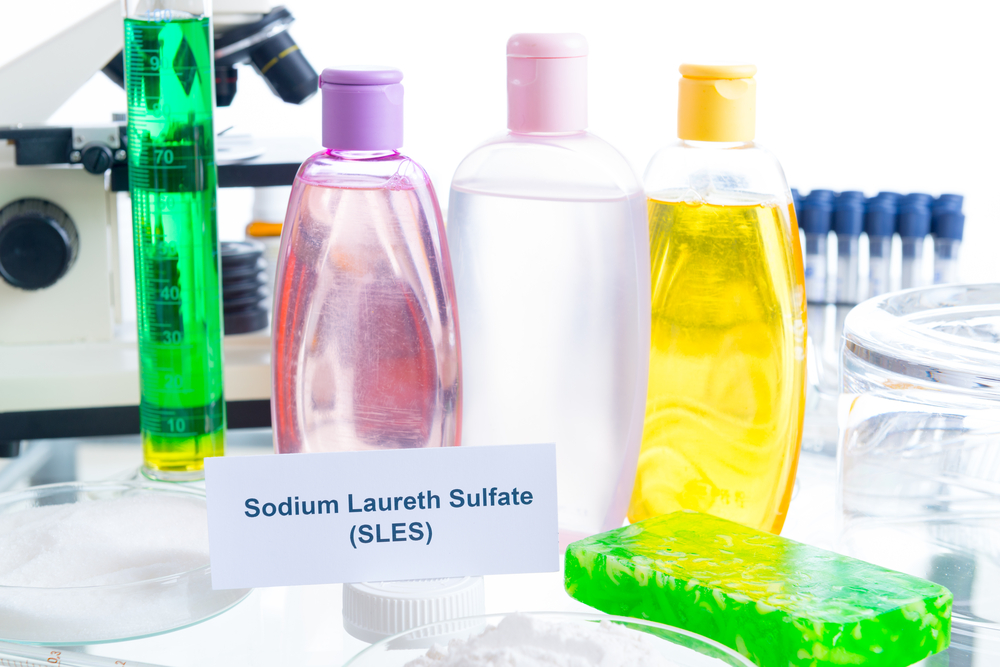
Sulfates are often used in cleansers and shampoos to create foam, but they can be extremely drying for sensitive skin. Sodium Lauryl Sulfate (SLS) and Sodium Laureth Sulfate (SLES) strip the skin of its natural oils, leading to dryness and irritation. This can make sensitive skin feel tight and uncomfortable, exacerbating conditions like eczema or rosacea. To avoid this irritation, choose sulfate-free products that cleanse without stripping moisture.
Though sulfates are effective in cleaning, they are too harsh for those with delicate skin. These ingredients can also lead to long-term skin damage, especially with frequent use. For better alternatives, look for gentle, hydrating cleansers that maintain the skin’s balance. These products will cleanse without the harsh side effects that sulfates cause.
Formaldehyde and Formaldehyde-Releasing Preservatives
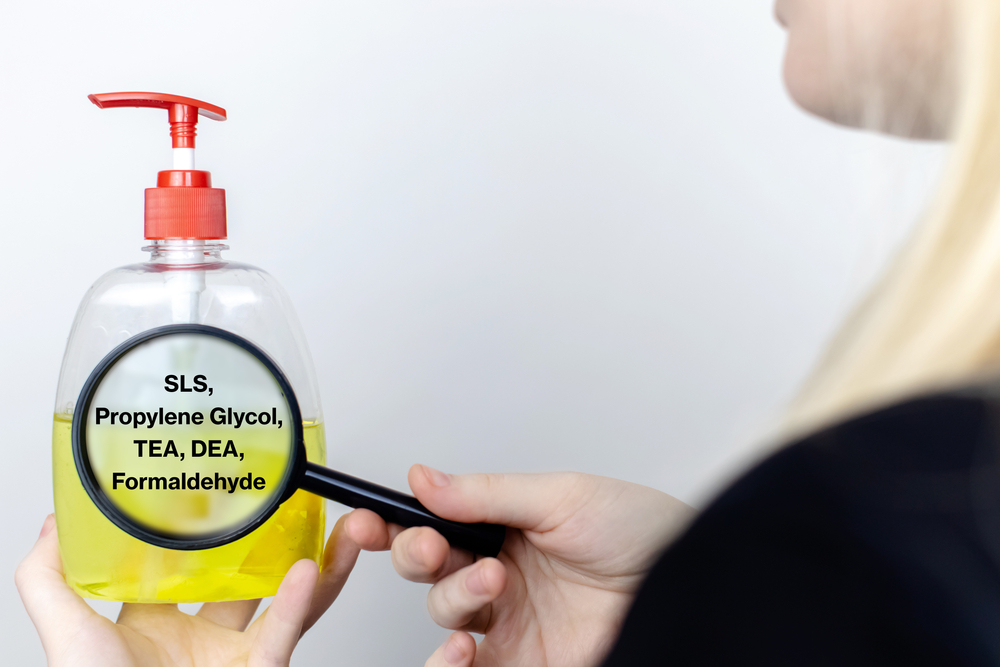
Formaldehyde and its derivatives, such as quaternium-15 and DMDM hydantoin, are used in skincare as preservatives to prevent bacterial growth. However, these chemicals can cause allergic reactions, skin irritation, and respiratory issues. For sensitive skin, exposure to formaldehyde can lead to contact dermatitis, causing red, itchy patches. Avoid products containing formaldehyde or formaldehyde-releasing preservatives for a safer skincare routine.
Formaldehyde is a known carcinogen, making it a particularly concerning ingredient for skincare. Its presence in skincare products is not always obvious, as it is released slowly from preservatives over time. Always check labels for any formaldehyde-releasing compounds and opt for products with safer preservation methods. This precaution will help protect both your skin and overall health.
Retinoids (Retinol, Retinoic Acid)
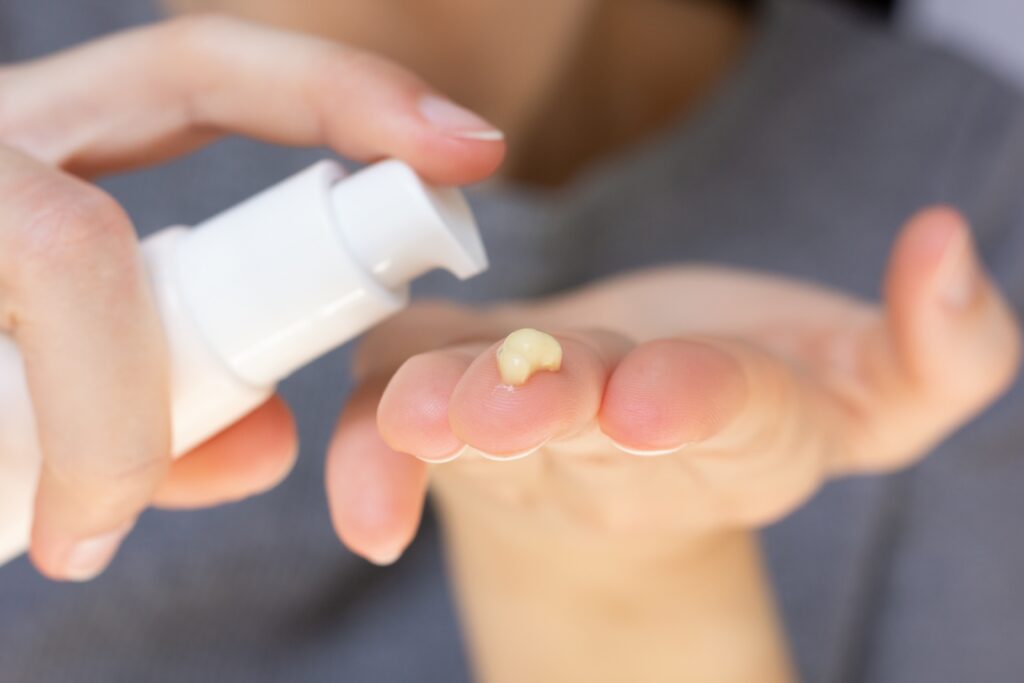
Retinoids, including retinol and retinoic acid, are powerful ingredients used for anti-aging and acne treatment. However, they can be too harsh for sensitive skin and may cause redness, peeling, or dryness. Retinoids speed up skin cell turnover, but they can irritate the skin barrier, especially for those with delicate skin. It is important to use these ingredients in moderation and to choose milder alternatives if your skin is sensitive.
While retinoids offer many benefits for skin renewal, their potency can lead to increased skin sensitivity. For individuals with sensitive skin, there are gentler alternatives like bakuchiol, which can provide similar benefits without the harsh effects. If you choose to use retinoids, start slowly and always pair them with a hydrating moisturizer to minimize irritation.
Synthetic Dyes and Colorants
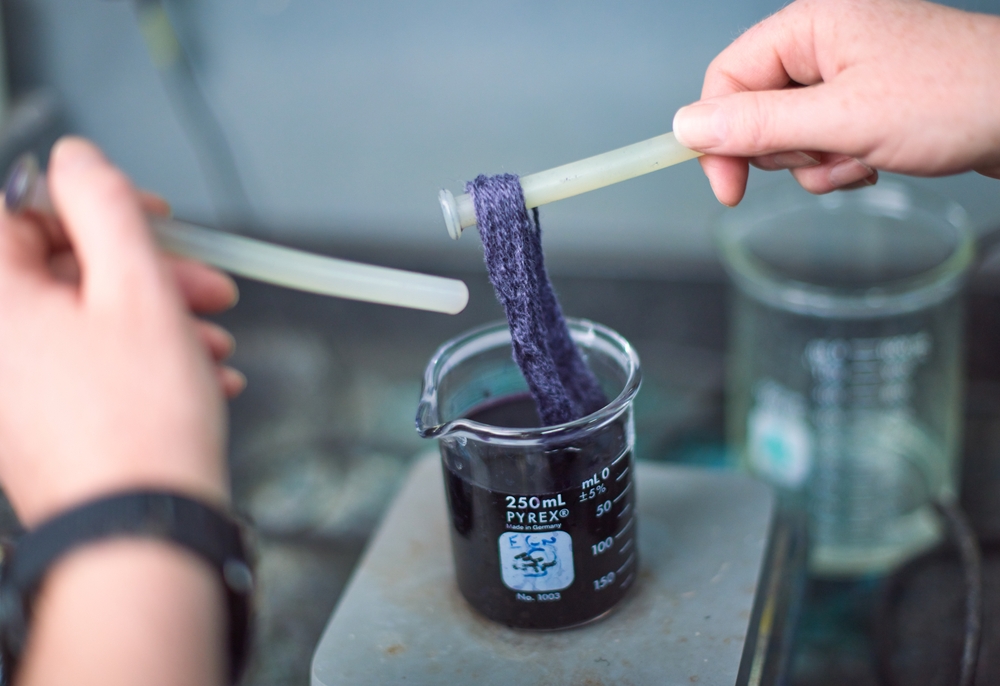
Synthetic dyes and colorants are added to many skincare products to enhance their appearance, but these artificial chemicals can be harsh on sensitive skin. They may trigger allergic reactions, rashes, or eczema flare-ups, especially in individuals with skin sensitivities. Many colorants, such as FD&C Red No. 40 or Yellow No. 5, are derived from petroleum and can irritate the skin. For sensitive skin, it is best to choose products that are free from synthetic dyes.
Although these colorants do not always cause harm, they have the potential to irritate sensitive skin and worsen existing conditions. If you notice that colorful skincare products cause redness or itching, opt for products that use natural ingredients for color. Avoiding synthetic dyes ensures that you keep your skincare routine as gentle and safe as possible.
Phthalates (Diethyl Phthalate)
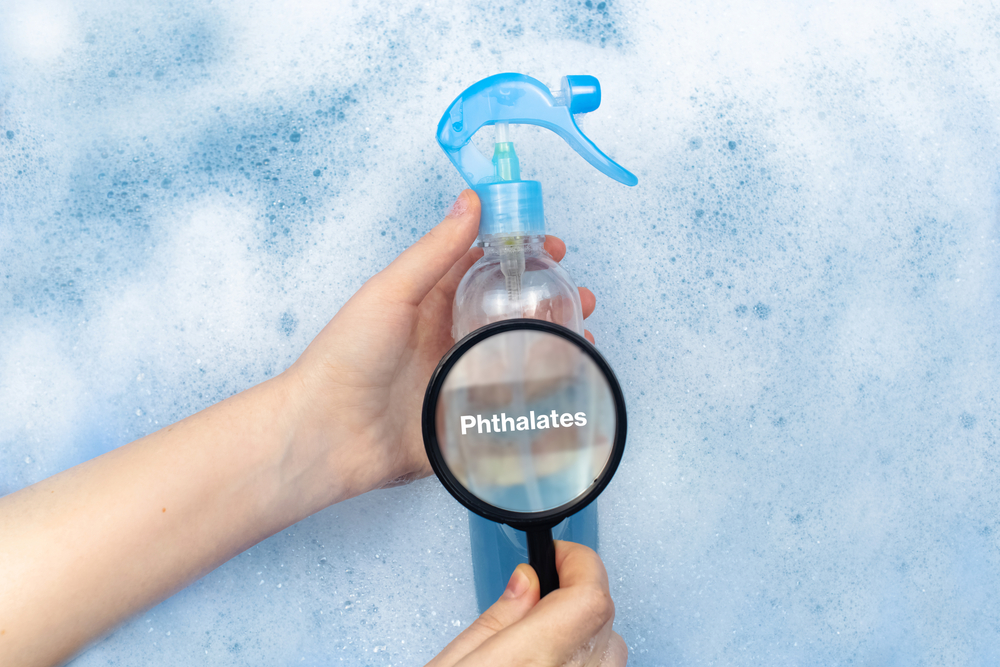
Phthalates are chemicals used to make skincare products more flexible and to enhance their scent. Unfortunately, these chemicals can disrupt hormonal balance, and they are often linked to skin irritation, allergic reactions, and sensitivities. Phthalates can be absorbed through the skin, leading to potential long-term health concerns, including reproductive issues. Always choose products labeled as “phthalate-free” to avoid exposure to these harmful chemicals.
Phthalates have been banned in certain countries due to their links to health issues, making them a questionable ingredient in skincare. Sensitive skin is particularly vulnerable to their disruptive effects, causing redness or discomfort. By selecting phthalate-free skincare products, you protect both your skin and overall health. Look for brands that prioritize clean, safe formulations without these chemicals.
Lanolin

Lanolin is derived from sheep’s wool and is often used in moisturizers for its emollient properties. While it helps to lock in moisture, it can cause allergic reactions and irritation for some individuals with sensitive skin. Lanolin contains traces of impurities that may trigger rashes, redness, or itching. If you have sensitive skin, it is safer to avoid lanolin and opt for plant-based oils like coconut or jojoba oil instead.
Although lanolin can be beneficial for dry skin, its potential to cause sensitivity makes it unsuitable for some people. If you are prone to allergies or have eczema, lanolin may exacerbate these conditions. Always check ingredient lists for lanolin and avoid products that include it if your skin is particularly sensitive. Choose alternatives with safer, non-irritating moisturizers to keep your skin nourished.
Benzoyl Peroxide
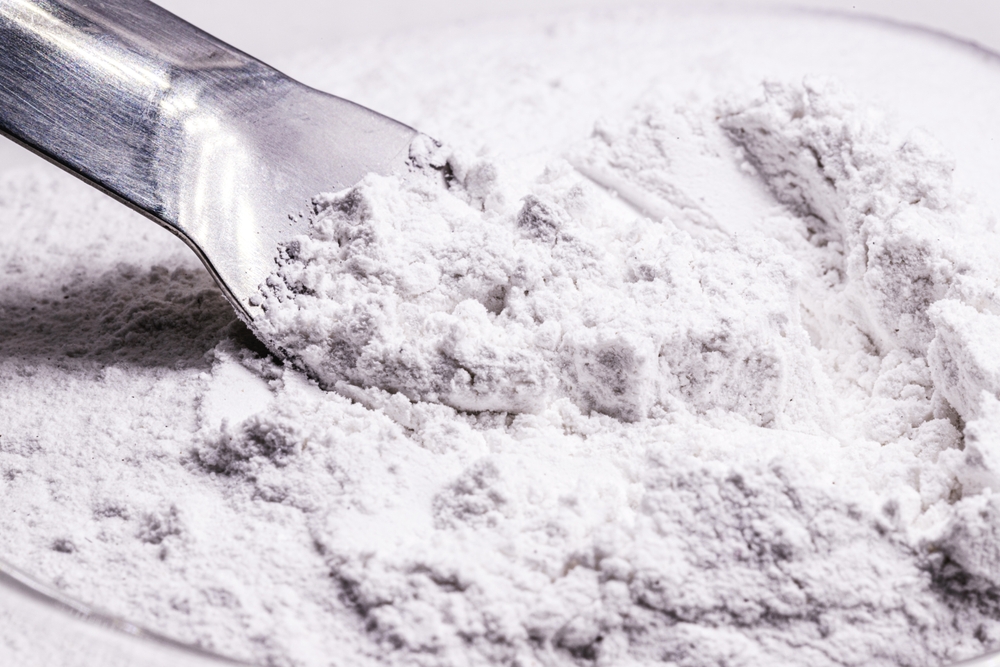
Benzoyl peroxide is a common ingredient in acne treatments due to its ability to kill bacteria and clear pores. However, it can be too strong for sensitive skin and often causes dryness, redness, and irritation. Benzoyl peroxide can strip the skin’s natural oils, leading to a damaged skin barrier. If you have sensitive skin, consider using gentler acne treatments that rely on salicylic acid or sulfur instead.
For many people, benzoyl peroxide works well in treating acne, but it can be harsh for those with delicate skin. It may cause severe peeling or burning sensations, making it unsuitable for sensitive individuals. If you find benzoyl peroxide irritating, consult with a dermatologist to find alternatives that will treat acne without causing discomfort. Always follow up with a soothing moisturizer after using acne treatments.
Talc
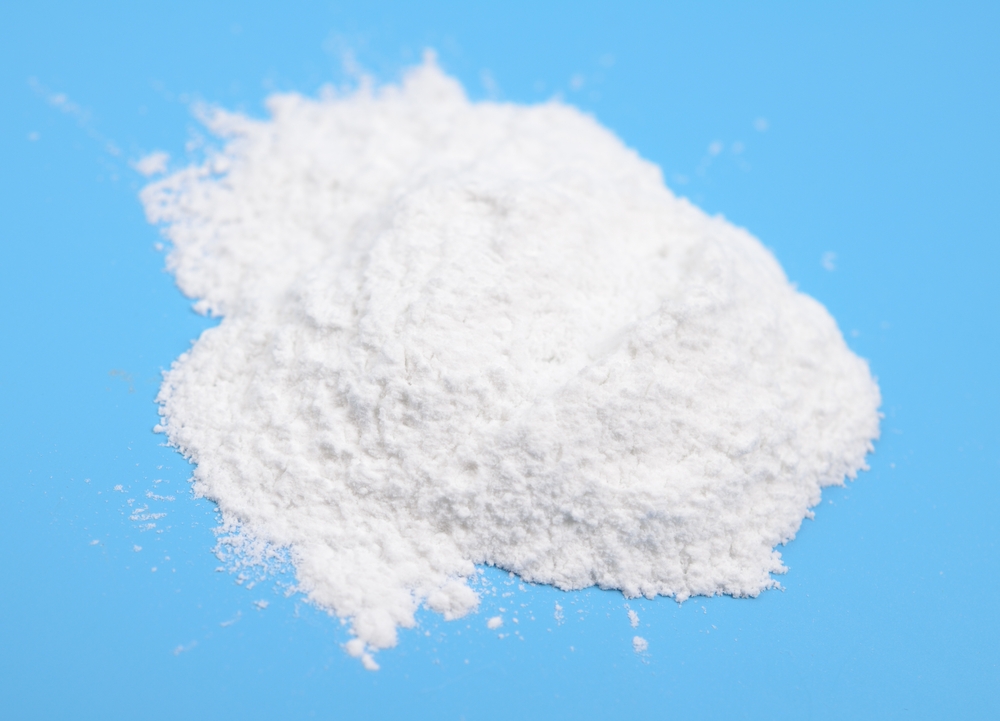
Talc is a mineral often used in skincare products for its absorbent qualities, particularly in powders. However, it can cause irritation, redness, and even respiratory issues when inhaled. Talc may also be contaminated with asbestos, a known carcinogen, making it a controversial ingredient in skincare. Choose talc-free products to avoid potential irritation and health risks, especially if you have sensitive skin.
While talc can be beneficial for absorbing moisture, its potential to irritate and its possible contamination with harmful substances make it a risky choice. Talc-free alternatives, like cornstarch, offer a safer option for sensitive skin. Always read product labels carefully to ensure the absence of talc, and select safer, non-toxic ingredients to maintain your skin’s health.
Triethanolamine (TEA)
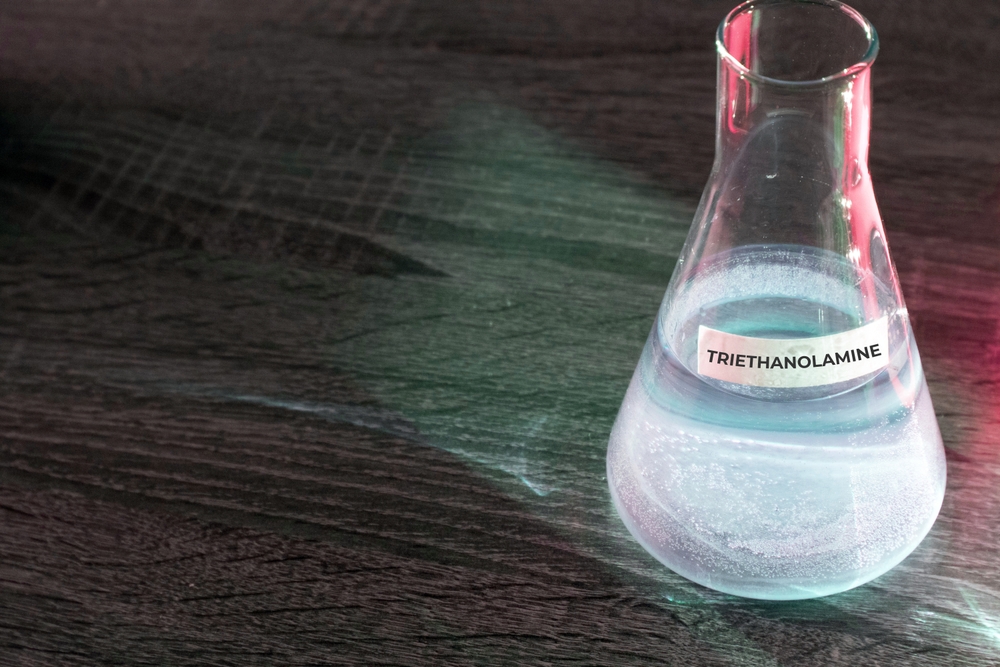
Triethanolamine (TEA) is commonly used in skincare products to adjust pH levels and improve texture. However, it can cause irritation, especially for those with sensitive skin. TEA can react with other ingredients, forming harmful byproducts that can irritate the skin. If your skin is easily irritated, look for products free from TEA and choose pH-balanced formulations instead.
Though TEA is effective in stabilizing product formulas, its potential to cause allergic reactions or sensitivities outweighs its benefits for some users. For sensitive skin, using products without TEA can help reduce the risk of redness or irritation. Always check ingredient labels and opt for products that offer gentle formulations with safer pH adjusters.
Silicones (Dimethicone, Cyclopentasiloxane)
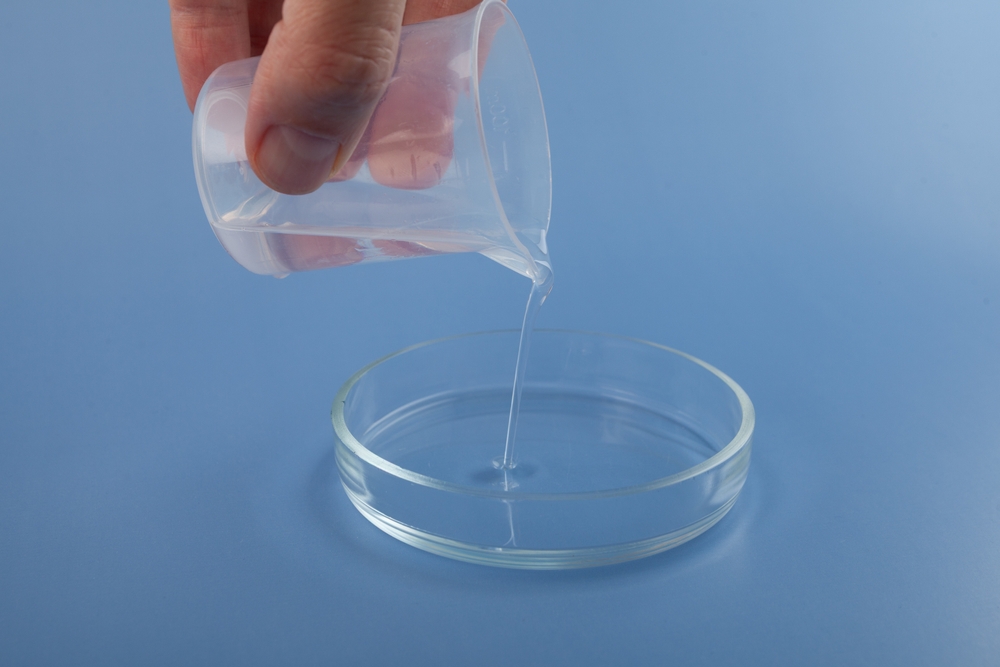
Silicones, such as dimethicone and cyclopentasiloxane, are commonly used in skincare to create a smooth, silky texture. However, they can cause buildup on the skin, leading to clogged pores and irritation, especially for sensitive skin. Silicones form a barrier over the skin that can trap dirt and bacteria, making it difficult for the skin to breathe. If you have sensitive skin, opt for products without silicones to avoid this problem.
Although silicones give products a pleasant texture, their potential to block pores and cause breakouts makes them unsuitable for sensitive skin. These ingredients are commonly found in primers, moisturizers, and sunscreens. To ensure your skin remains clear and irritation-free, choose silicone-free products that allow your skin to breathe and absorb nourishing ingredients.
This article originally appeared on Avocadu.
